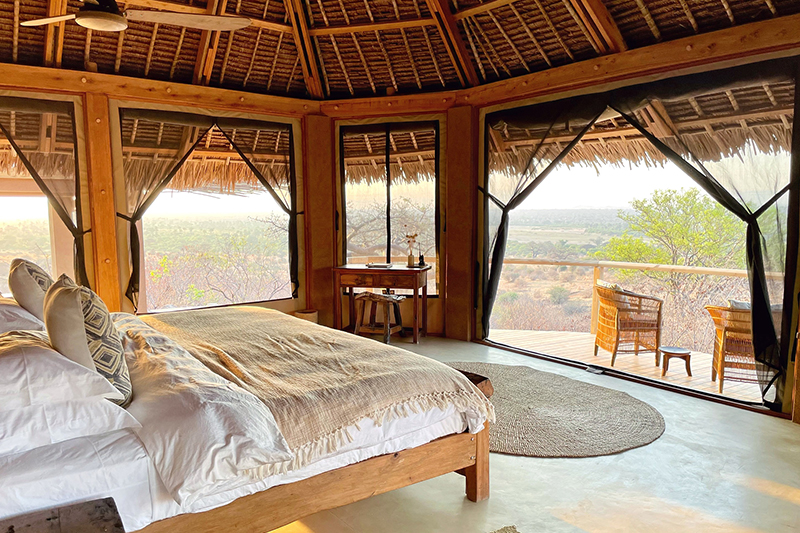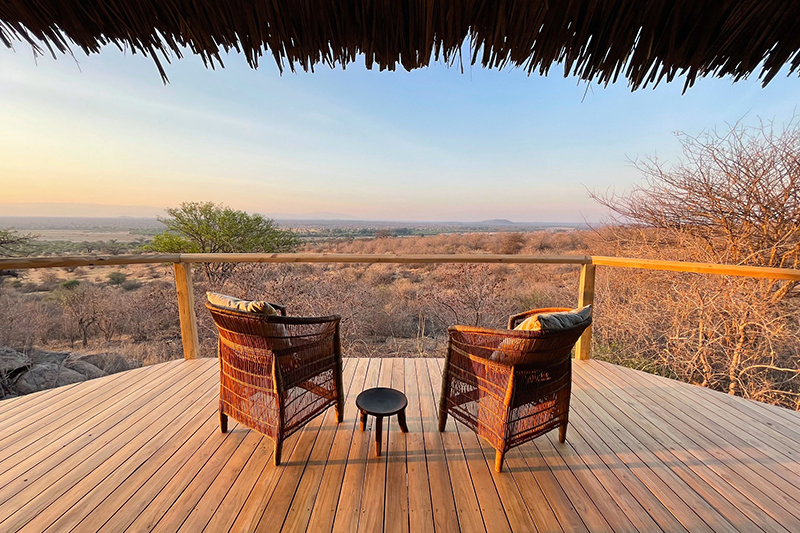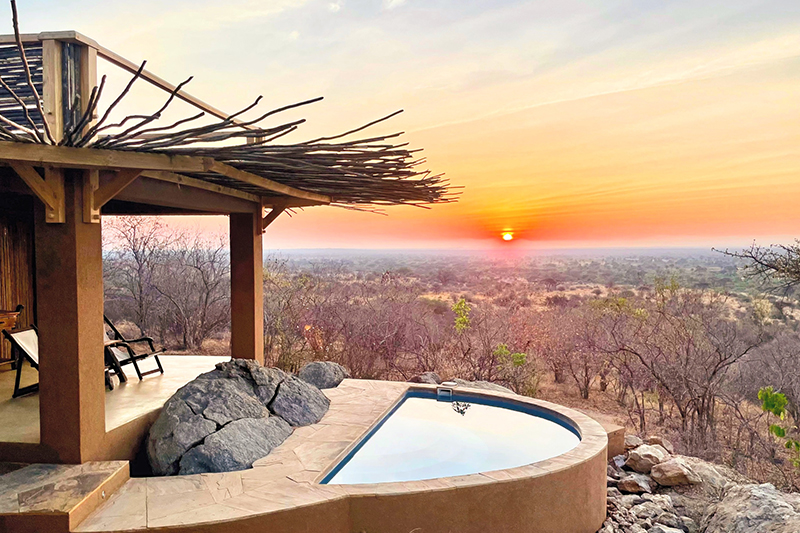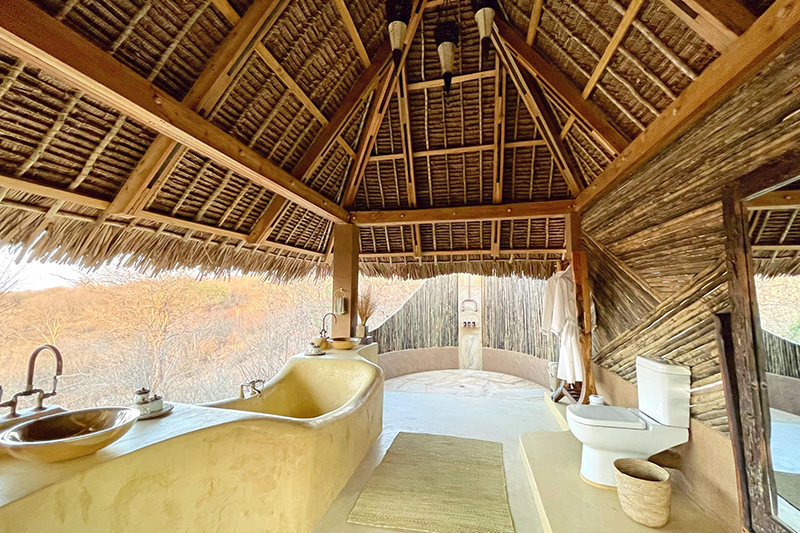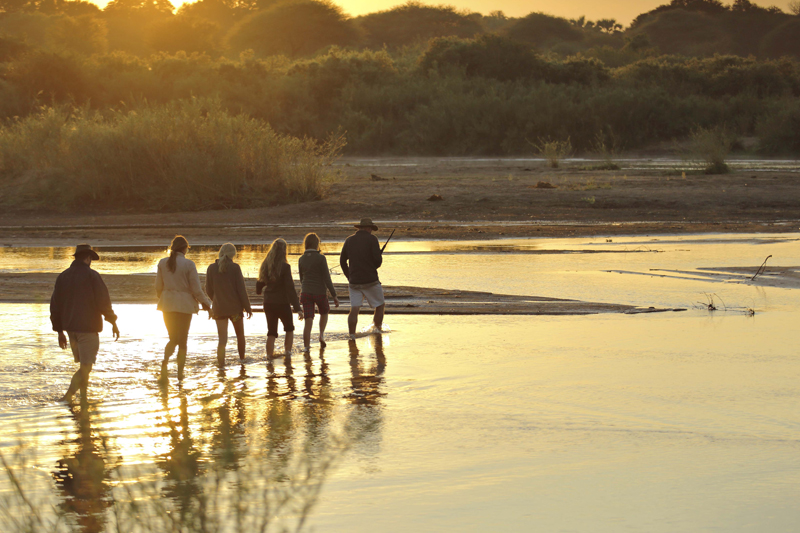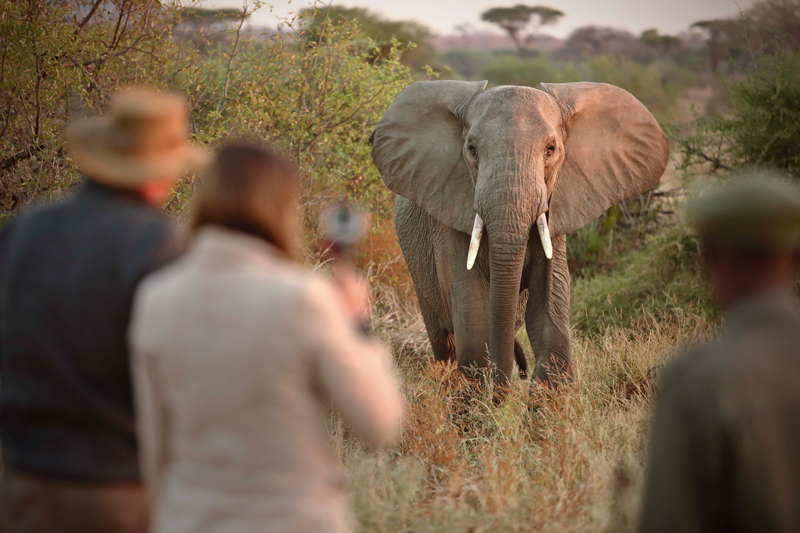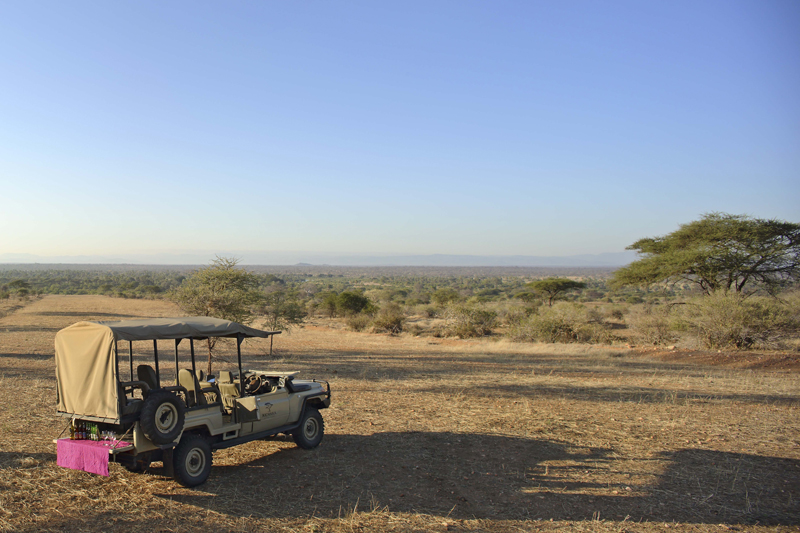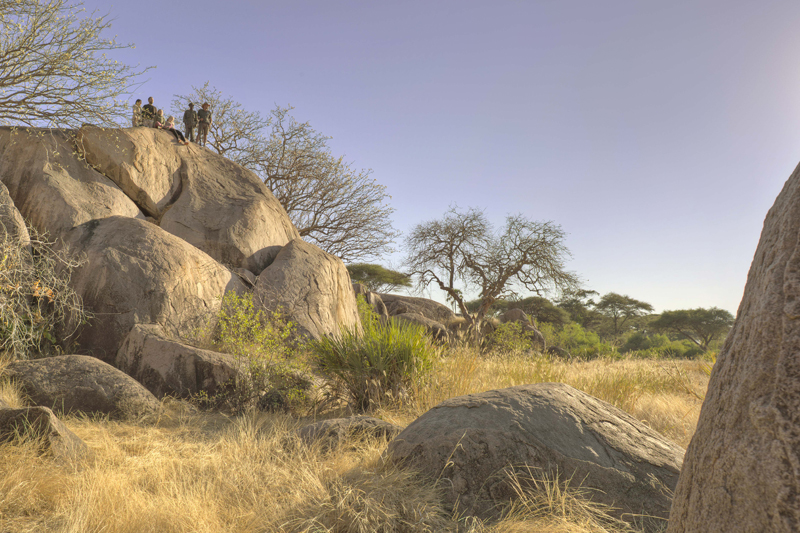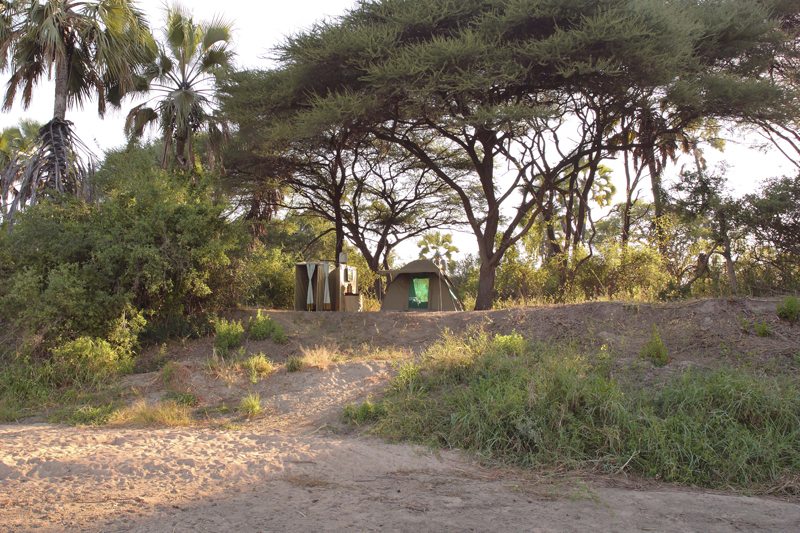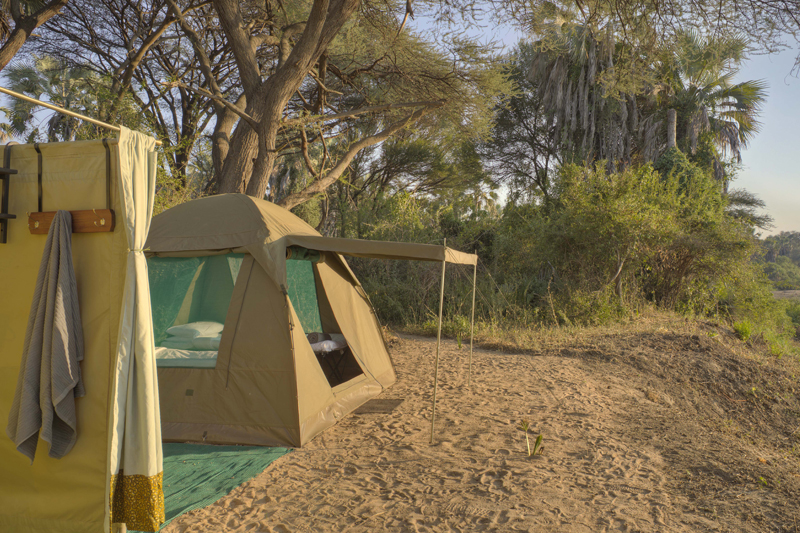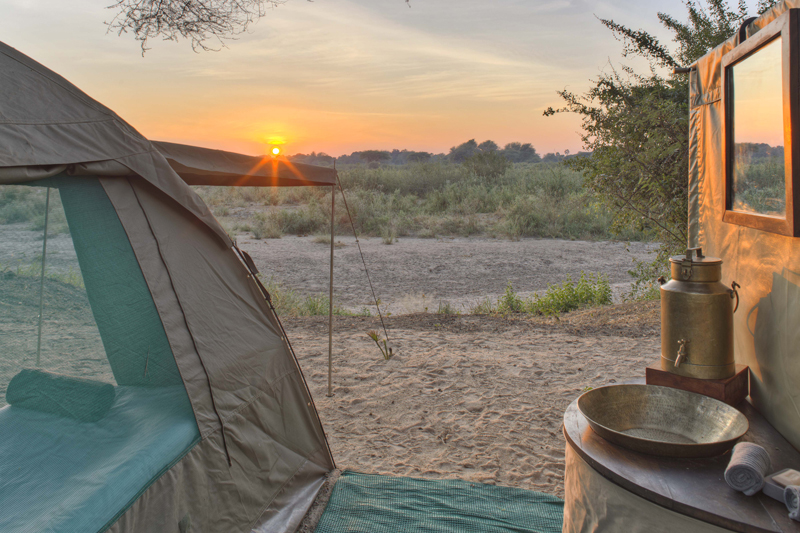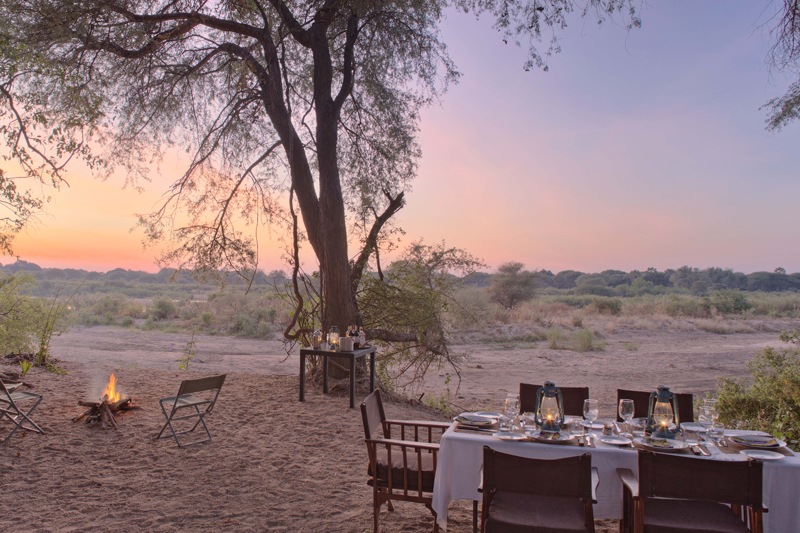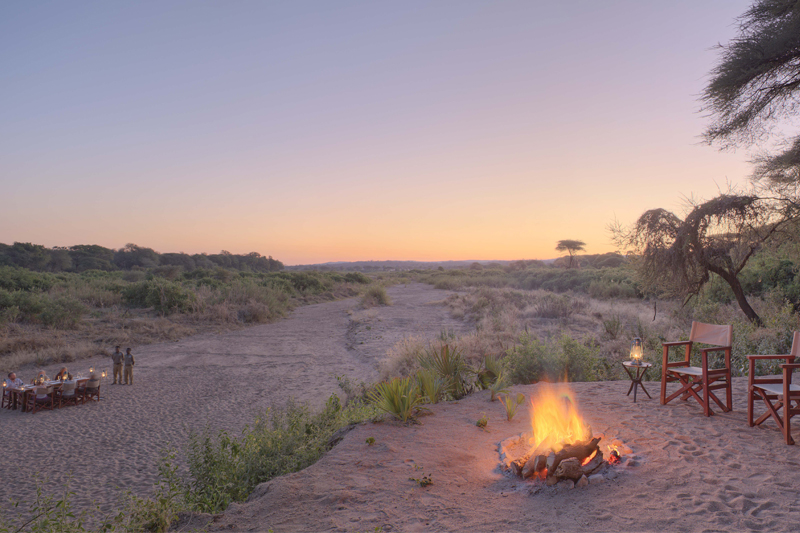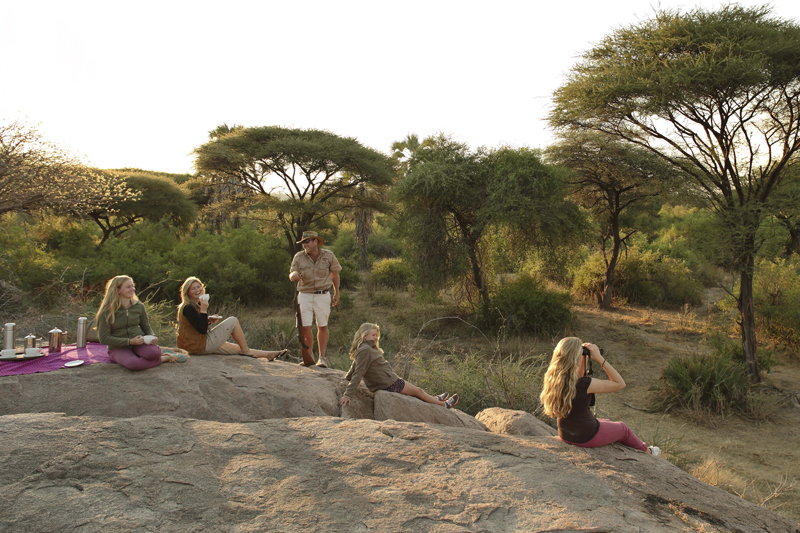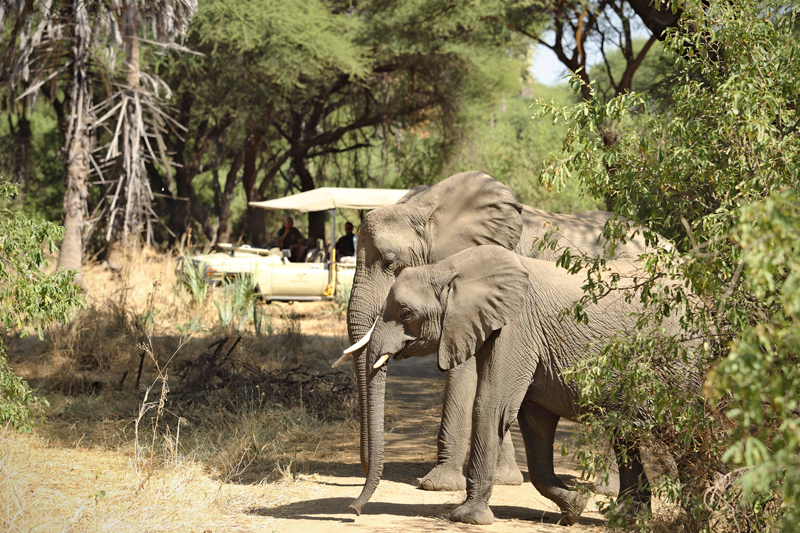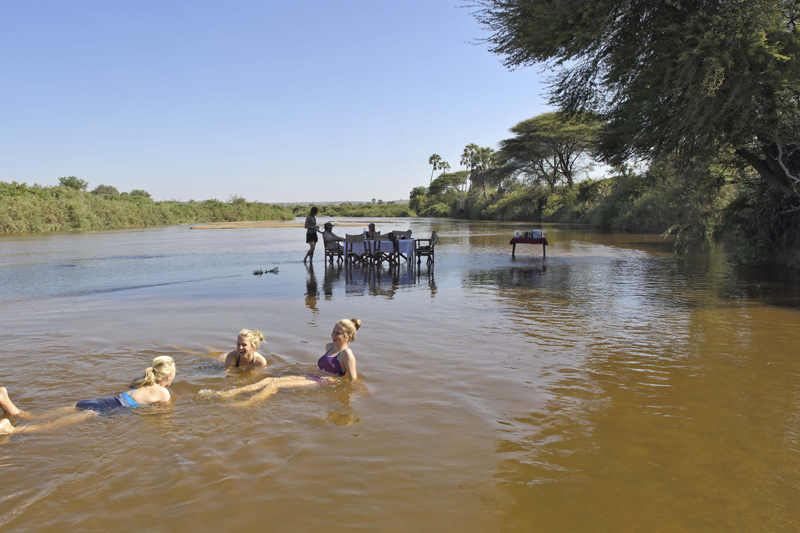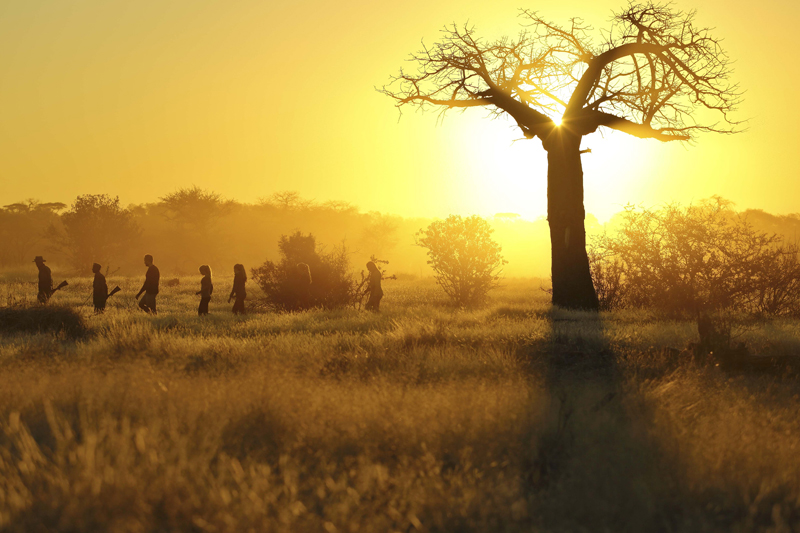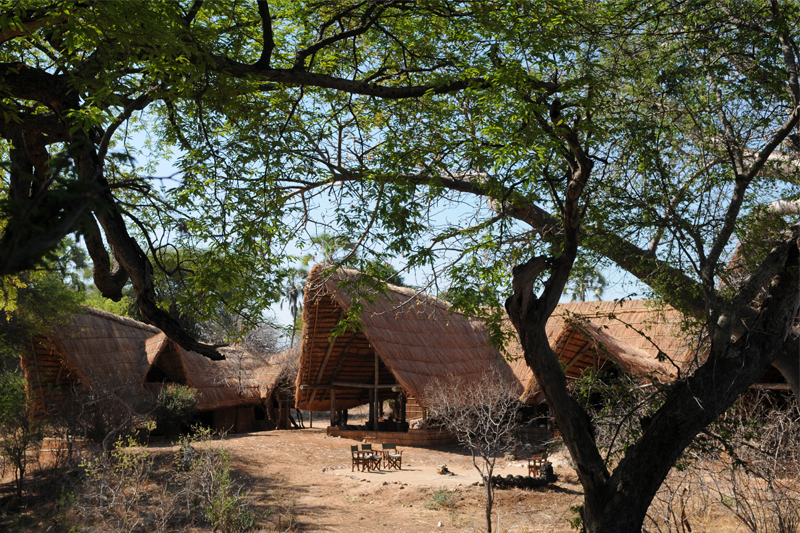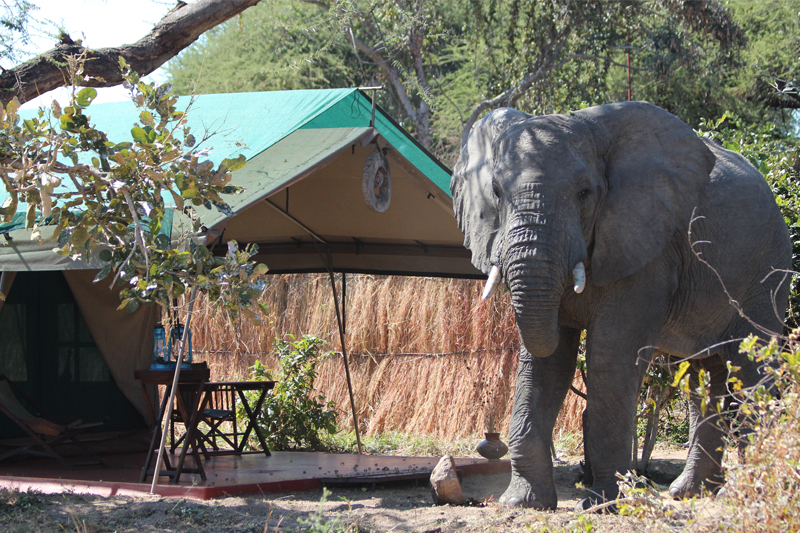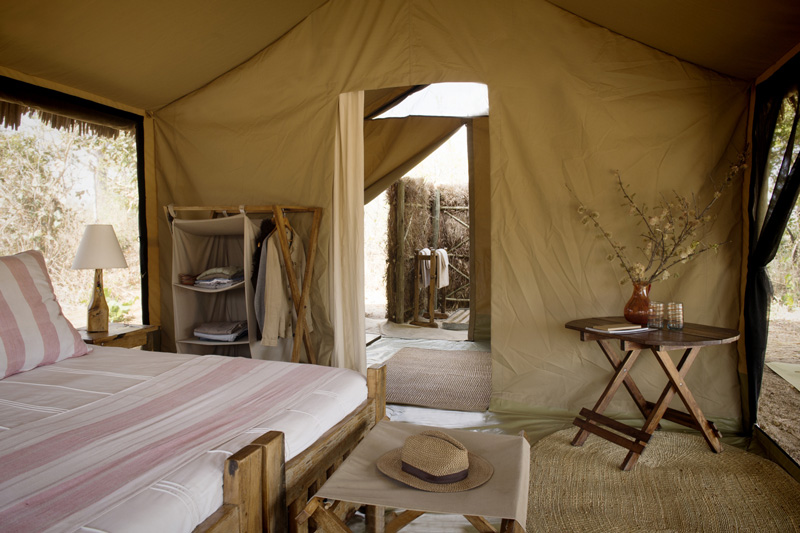Kichaka Expeditions
Kichaka Expeditions is a specialist collection of camps allowing authentic exploration, particularly with guided walking safaris, of the remote north-east section of Ruaha National Park.
Kichaka Expeditions is a fantastic option for anyone travelling to Tanzania who is experienced in Africa and specifically enjoys walking safaris, great guiding and old school safari hospitality. Their main bush camp, Kichaka Zumbua, is very comfortable but retains a feel of rustic authenticity, and would naturally attract guests who enjoy an exclusive, remote camp environment with friendly service and communal meals. Kichaka Expeditions has built a reputation for superb walking trails and while game drives are possible, you go to Kichaka for the walking and in particular the specialist guiding from owner Andrew Molinaro who has a wealth of experience in southern Tanzania and who is an excellent host, together with his partner Noelle. For those seeking more adventure, there are fly-camping options to explore deep into the remotest parts of Ruaha. Kichaka Kidogo offers fly-camping for a few nights; whereas Kichaka Wild offers a seven-night expedition into the furthest reaches of the Park. In general, this is a superb, unique and very exclusive safari experience for the right clients.
Rooms
Kichaka Zumbua accommodates eight guests in three spacious tented suites and one standard room. The suites comprise a central bedroom area with thatched roof and canvas sides, each very comfortably furnished with king/twin beds, bedside tables and writing desk, leading on to a deck with expansive views. Adjoining each tent to one side is an open fronted bathroom, accessed via a few (uncovered) steps, with bathtub, outdoor shower and flush loo. To the other side is a second deck with private plunge pool and access to a roof top deck. The standard room is the same style but does not have the plunge pool or private roof deck.
Their lightweight fly-camp, Kichaka Kidogo, is situated along the banks of the Ruaha River and allows guests to foray even further into the wild sections of Ruaha National Park. The camp consists of three dome tents each equipped with comfortable twin camp beds and a private bathroom located a few steps away with bucket shower, short drop toilet and vanity.
Kichaka Wild (a seven-night expedition – see activities for more information) also uses up to three dome tents with the same set up as Kichaka Kidogo.
Central Areas
The shared central areas of Kichaka Zumbua include a lounge with comfortable sofas and a good selection of books; a dining room; and a swimming pool and outdoor fireplace area aptly named “the Star Bar”. Whilst the camp tries to retain a bush atmosphere there are facilities available for charging batteries.
At Kichaka Kidogo and Wild, meals and drinks are taken under the stars around the campfire and there are communal solar powered charging points available.
Facilities
Wi-Fi – Yes
Power for Charging – Yes
Swimming Pool – Yes
Habitat & Wildlife
Ruaha National Park was previously part of the huge Rungwa Game Reserve, with which it shares its north-western boundary. In 1964, it was gazetted as the National Park. The terrain within the park is well wooded and undulating. The Great Ruaha River gives the park a permanent supply of water, but there are also numerous sand rivers which become raging torrents during the rains (from December to April). In addition to the Great Ruaha River, there are also numerous waterholes, swamps and seepage areas which provide water throughout the year.
Generally speaking, the park is divided into four different habitats consisting not only of Miombo, but also of undulating hills dominated by baobabs, the albida woodland along the main river courses and areas of open ‘black cotton’ grassland. Mammal viewing is superb particularly in the dry season (June to October) when the animals are forced to congregate around water sources – elephant, buffalo, lion, leopard, cheetah, wild dog, impala, zebra, giraffe, hippo, waterbuck, roan and sable antelope, eland, greater and lesser kudu, and Grant’s gazelle are just some on the many species to be seen.
Local birdlife is exceptional as Ruaha lies in the convergence zone of species found both to the north and south of the region. Amongst the 570 or so species recorded in the park, you can expect to see bateleur and fish eagles; ostrich; spurwing and Egyptian geese; crowned cranes; guinea fowl; yellow-billed, saddle-billed, Abdim’s and open-billed storks; and numerous species of ibis, plover, kingfisher, bee-eater, parrot, duck, barbet, dove, francolin and roller. The local red-billed hornbill has recently been recognised as its own species. Tsetse fly are present in Ruaha but more in some areas than others. The core game viewing region around the Mwagusi River is not seriously affected by Tsetse.
Activities
Activities from Kichaka Zumbua and Kidogo typically include a long morning walk (a good 5-6 hours) and then afternoons can include a short walk, or a game drive which continues after dark back to camp (the road networks in the area are limited so the game drives will cover the same ground, but are always very interesting). Activities can also be given a particular focus, depending on the interests of the group, such as birding or tracking. Either camp can be booked on a private basis (in which case you have the freedom to walk as much as you want) or on a shared basis (Kichaka Kidogo fly-camp operates with a minimum of two guests on a shared basis).
Kichaka Wild is a seven night fly-camping expedition which offers a true sense of adventure and the opportunity to explore the furthest reaches of Ruaha National Park. Each expedition is booked on a private basis only and is personally led by Andrew Molinaro, with a choice of four remote areas. Activities are mainly centred around walking safaris, but game drives will also be on offer, and the itinerary is completely customised the clients’ specific interests.
Seasons
Kichaka operate all year round, though July to October is the core dry season and best for walking and fly-camping.
Children under the age of 12 years are not accepted (must be over 16 to walk) and there is no triple or family accommodation. However, families with older teenage/adult children who are adventurous and keen on walking could have an amazing adventure with Kichaka.
The guides at Kichaka Expeditions contribute to two different data bases which work to help protect elephant and large carnivores in their National Park through the study and understanding of different individual species. The information is collected for two NGOs, Ruaha Carnivore Project (RCP) and Southern Tanzania Elephant Program (STEP), both of which are undertaking research and helping to conserve Ruaha. Guests to Kichaka Expeditions are able to donate to these projects.
Kichaka Expeditions is also involved, in collaboration with STEP, with the education and training of park rangers through their Kichaka Expeditions Environmental Program (KEEP).



